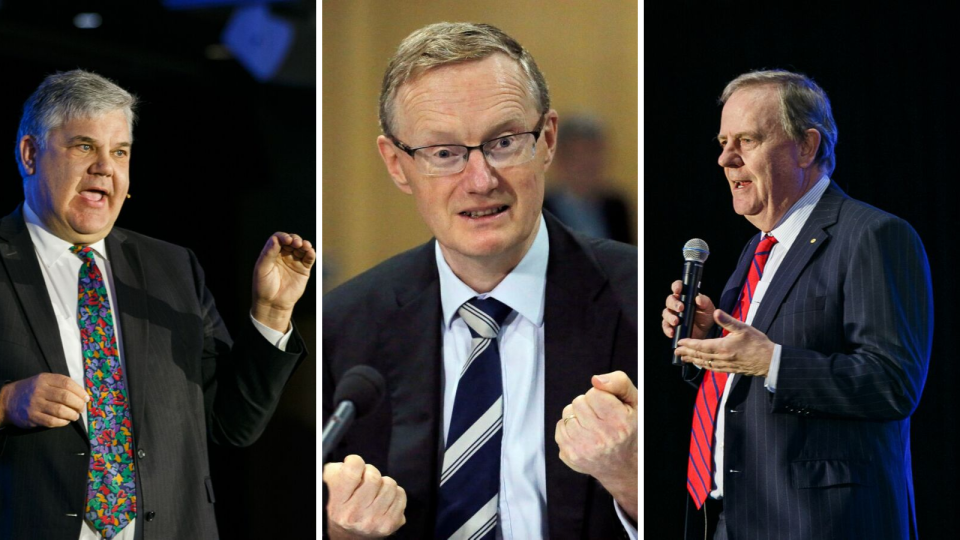Will the Reserve Bank cut interest rates again tomorrow?

With each new month – bar January – comes another decision from the board of the Reserve Bank of Australia on what the official cash rate should be.
In order to prop up a struggling economy, interest rates have been lowered this year to cut the costs of mortgages for Australians, in order to promote greater consumer spending.
The RBA made back-to-back cuts in June and July before hitting pause. The banks followed suit, to varying degrees, slashing rates for home loan holders and savers alike.
Now, speculation is swirling once again about whether the RBA will cut rates for the third time this year, which would bring the official cash rate to yet another new historic low.
But not everyone believes another rate cut will be as effective.
The RBA should have cut rates earlier: ‘The Kouk’
Stephen Koukoulas, one of Australia’s leading independent economists, has been vocal about his views on the RBA sitting on its hands.
Speaking at the Yahoo Finance’s All Markets Summit last Thursday, he said: “The economy is pretty sick at the moment.”
Annual GDP growth is at its lowest level since the GFC, according to Koukoulas, and consumer spending is being hamstrung by mass unemployment and low wage growth.
The RBA is now trying to play catch-up with cutting rates – but Koukoulas believes it’s too little, too late.
Structural, not monetary, policy is what we need: Peter Costello
However, at the same summit, Australia’s longest-serving treasurer Peter Costello expressed his doubts about how far further rate cuts would go.
“Now, what will a rate cut do for the economy? In my view, not much,” he said.
“We've already got a cash rate of 1 per cent; suppose it goes to 0.75, suppose it goes to 0.5.
“Take 25 basis points off, [is that] going to make a big difference? I don't think so. It's also what we call the law of diminishing returns.
“Every rate cut brings a little less of a return than the one before.”
Instead, the government needs to be doing more to make the economy more productive, Costello pointed out.
“Monetary policy, fiscal policy stimulus; one thing you know we don't talk about much in this country – in fact, we don't talk about it much around the world anymore – is what I call structural cost. Making the economy more efficient,” he said.
Costello is ‘absolutely right’: Frydenberg
Over the weekend, current treasurer Josh Frydenberg said Costello was “absolutely right” to say the effects of interest rates diminished over time.
"[He] is absolutely right, it is a law of diminishing returns once you start to reduce interest rates below a certain point the impact on the economy is reduced,” Frydenberg said, as reported by the SMH.
In a speech on Thursday, Frydenberg said Australia has been pulling the “easy levers” of interest rates and spending and haven't been thinking enough about the “hard levers”.
The reforms on productivity Costello spoke about are “very much on the government’s agenda", Frydenberg said.
Further interest rate reductions ‘ineffective’, ‘nullified’: The Australia Institute
Costello’s sentiments are shared by think tank The Australia Institute. Published in a paper on Monday, the Institute’s senior research fellow David Richardson said monetary policy was “spent”.
Typically, banks tended to follow RBA’s changes to the cash rate, he wrote in the Monetary Policy is Spent: It’s Fiscal Policy or Bust report.
“But now attempts to maintain margins on the part of the banks will see increasing departures from the automatic changes in line with the RBA changes.
“Reductions in the official rate will be less potent because the banks will increasingly resist passing on any reductions to their own customers,” Richardson said.
So, with the impact of further rate cuts diminishing, what should be done instead?
“Given less effective monetary policy then the government only has one arrow left in its quiver. It must use fiscal policy to stimulate the economy.”
“The effectiveness of using fiscal policy to stimulate a sluggish economy is proven, it’s how Australia stayed out of recession during the Global Financial Crisis,” Richardson said.
Experts split on an October cut
Economic experts are split over whether the RBA will indeed make a downward move on interest rates in their meeting tomorrow, with 55 per cent of Finder experts predicting a cut to 0.75 per cent on Tuesday.
Australia National University’s RBA Shadow Board believes that the rate should stay as is, although the conviction that rates would stay steady fell from 71 per cent to 65 per cent.
AMP Capital chief economist Shane Oliver is among those who think the RBA will cut.
“We remain of the view that the RBA will cut rates again on Tuesday and now see the low point being 0.25 per cent in February next year,” he said.
Metropole Property Strategists managing director and Yahoo Finance property expert Michael Yardney said the worse-than-expected unemployment rate and a gloomy economic backdrop makes it more likely we will see a cut tomorrow.
However, realestate.com.au chief economist Nerida Conisbee said the rise in unemployment is not quite enough for the RBA to cut, predicting that the next cut would be in November.
Make your money work with Yahoo Finance’s daily newsletter. Sign up here and stay on top of the latest money, news and tech news.

 Yahoo Finance
Yahoo Finance 
